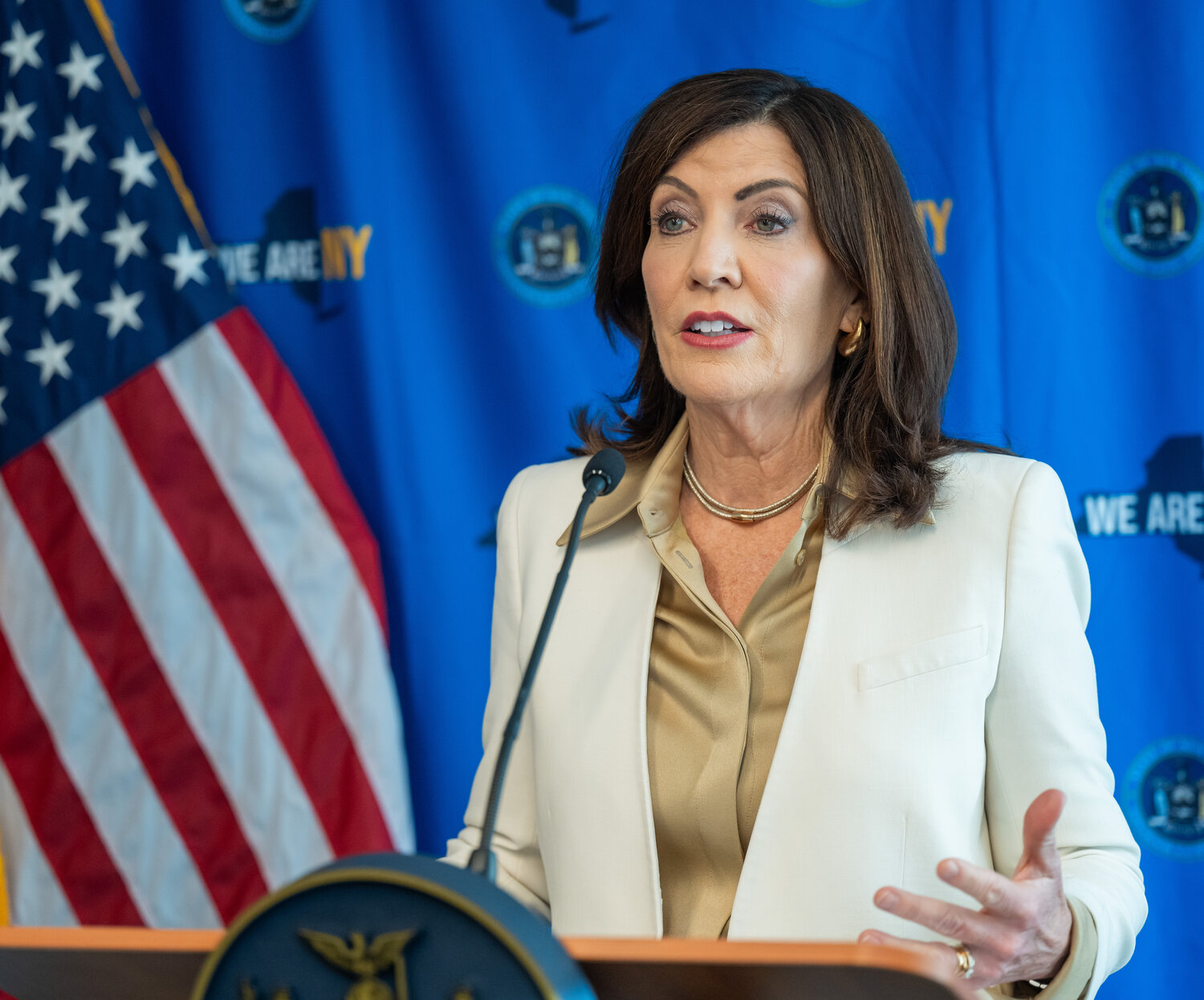Hochul shifts elections to 2026
Gov. Kathy Hochul recently signed legislation aligning many odd-year local elections with statewide and legislative elections that are held in even-numbered years.
Hochul said she believed the bill would expand access to voting, and make it easier for New Yorkers to vote in local elections that directly impact their lives and the communities they live in.
The change will begin in 2026. Elections for county executive, county legislatures and town board seats will be held at the same time as voting for state and federal offices.
The bill has been met with opposition from Long Island Republicans, who say the shift will take the focus away from local candidates and drown out local issues.
“I don’t know if it’s necessarily good for New Yorkers,” Long Beach City Council President Brendan Finn said, “because when you load up the ballot with the high-end-ticket people, the things on the bottom kind of get overlooked by the sheer amount of candidates. If everything gets moved to an even year, with presidential or a governor’s race, the bottom of the ticket goes by the wayside, and that’s not really good for democracy.
“It’s a bit of a gimmick. They have the legislative ability to do it,” Finn added, referring to Democrats, “but I don’t know what it really accomplishes besides trying to win them more elections.”
According to the governor’s office, the legislation will impact all elections for which dates can be changed through legislative action. Changing election dates for certain offices, including judgeships and offices in any city, must be done through a constitutional amendment.
“Gov. Hochul also announced her support for a future amendment to the New York State Constitution that would align elections for all offices — a fiscally responsible approach that would reduce the taxpayer cost of election administration by avoiding the need for elections to be held every single year,” a release from the governor’s office further states.
According to the state, holding elections in odd-numbered years increases the cost of participating in the voting process, particularly for voters who may have a difficult time arranging for time off from work and traveling to their polling sites.
“Democracy works best when all eligible voters can participate, and this new law advances New York State toward that goal,” read a statement from Albany. “Other states and jurisdictions around the country have made similar common-sense adjustments to their election calendars and have subsequently seen significant increases in voter participation in local elections.”
The bill also aims to increase voter turnout, which is historically much lower in local election years. Millions more New Yorkers took part in elections in 2020, with voter turnout at roughly 64 percent. In 2021, just 25 percent of eligible voters participated in local elections around the state.
“Every eligible New Yorker deserves the right to participate in the democratic process without unnecessary barriers,” Hochul said. “By signing this legislation, we are taking a significant step towards expanding access to the ballot box and promoting a more inclusive democracy. This is a meaningful first step, and I would support a constitutional amendment to align all election years, to save taxpayer dollars and avoid voter fatigue.”
Democratic Assemblywoman Michaelle Solages said that legislators are dedicated to ensuring that every New Yorker has the opportunity to exercise their right to vote and participate in democracy.
“By streamlining the election process and aligning it with a period of heightened civic activity, New York state aims to strengthen voter engagement and empower disadvantaged communities to select accountable representation at the local level,” Solages said in the state’s release. “There is no doubt that this legislation is a positive win for the people.”
Republican State Sen. Steve Rhoads disagreed, saying that the law is “governing against the will of Long Islanders, which is why (Democrats) are being rejected locally at the ballot box.”
“Whether it is stacking the courts, redrawing congressional lines — again — to favor Democrats or generating mass confusion with town and county elections,” Rhoads said, “one-party rule in Albany is more concerned with gaming the system than they are about changing their own policies that have made Long Islanders and all New Yorkers less safe, less prosperous, and less free. We can only hope that the courts reject this blatant attempt to drown out important local issues discussed in town and county elections by overpowering them with larger state and national issues for perceived political advantage.
“The public deserves to have the opportunity to discuss local town and county issues in the independent and uncluttered forum that odd-year elections provide.”






